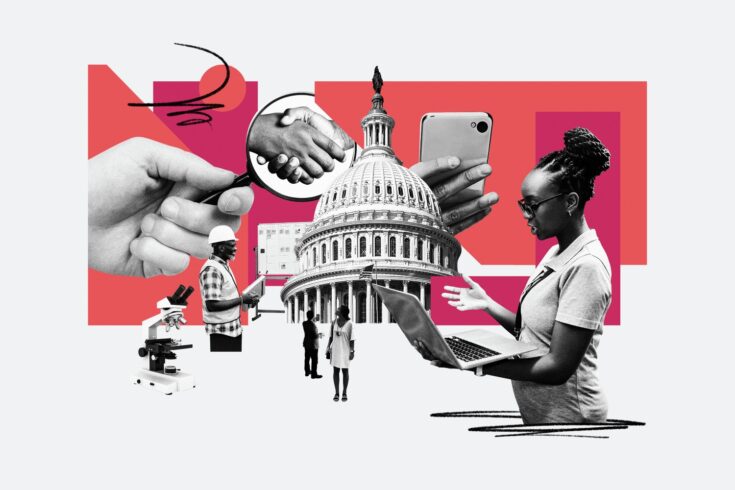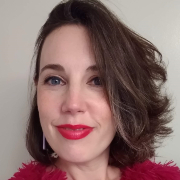It starts with an idea. In this instance, an idea that transcends geographic boundaries. A curiosity-driven idea that doesn’t respond to a specific theme or time-bound opportunity for proposals. An idea that has a transatlantic research team ready to explore fundamental questions. An idea that shouldn’t be constrained by process.
233 of these ideas have been supported by UK Research and Innovation (UKRI) and the US National Science Foundation (NSF) with £185 million in funding.
Lead agency opportunities
They’re supported through so-called ‘lead agency’ opportunities that allow UK-US projects to submit a single application for a joint proposal.
The clue’s in the name. The application is submitted to one agency to take the lead on the peer review process and make a recommendation on whether the project should be funded or not. If successful, the project will be funded in the UK by UKRI and in the US by NSF.
Successful projects are:
- using fossil fungi data to model how vital fungal ecosystems might respond to today’s warming climate
- developing ‘right-first-time’ manufacture of pharmaceuticals in the wake of challenges highlighted by the COVID-19 pandemic
- advising policymakers in the UK, the US and the EU on the impact of internationalisation on wind energy technology supply chain manufacturing and innovation
We got here by building trust
This year, the UKRI North America office celebrates its 15th anniversary. Our goal is to be the voice of UKRI in the US and Canada, to catalyse and connect, and to build and strengthen lasting and productive relationships with our funding partners.
We are based in the country and able to meet partners face-to-face. This helps us to understand and demystify the practice and process behind decision-making – whether explaining UKRI to our partners or understanding how our partners do things.
We also get a sense of the cultural context essential to avoiding those ‘separated by a common language’ moments that can make the difference between resolving something in a minute or a month.
At first, the office’s focus was to set up the inaugural lead agency. This launched in 2013 and was between NSF’s Social Behavioral and Economic Sciences Directorate and:
- the Arts and Humanities Research Council
- the Biotechnology and Biological Sciences Research Council
- the Economic and Social Research Council
Underpinning that first lead agency was a memorandum of understanding (MoU) on research cooperation signed by UKRI and NSF, formalising the growing collaboration between our two agencies.
Trust takes time
The mathematically minded among you may have noticed that it took five years between the establishment of the office and the signing of the MoU. You’re spot on (gold star).
Trust takes time. Process takes patience. Lead agency means developing an in-depth understanding of the principles and processes your partner agency uses to carry out peer review until you feel comfortable that those principles align fully with yours. UKRI and NSF have what’s known as a ‘reciprocal’ lead agency, meaning that either agency can take the lead on peer review.
A match made in heaven
‘UKRI in North America: impact in a changing world’ is a new report documenting the evolution and impact of the UKRI North America office. Our networks and insight have helped grow transatlantic collaboration across the board, often acting as a catalyst before handing over to thematic leads, while remaining engaged in an advisory capacity.
The International Thwaites Glacier Collaboration (ITGC), led by NSF and the Natural Environment Research Council and initially facilitated by the UKRI North America office, has so far brought together more than 70 scientists and students to investigate one of the most unstable glaciers in Antarctica. The Thwaites Glacier is part of the West Antarctic Ice Sheet which, if it were to melt, contains enough ice to cause sea levels to rise by 3.3 metres leaving vast swathes of land underwater, including:
- parts of central London, Cardiff and Belfast
- entire cities including Bangkok and Kolkata
- most of the Netherlands
These world-class researchers, underpinned by significant joint funding, are making new discoveries to tackle urgent climate change questions and better understand potential solutions.
The beauty of lead agency opportunities is that they offer additional support to major programmes like ITGC, such as the ARTEMIS project which is looking at the association between iron and how fast glaciers melt. In other words: a match made in heaven, with UKRI North America as the matchmaker (yes, I watch too much reality TV).
Since 2013, lead agency opportunities have grown to cover five UKRI councils and six NSF directorates. In essence, everywhere our remit and funding approach align.
The most recent opportunity, between the Engineering and Physical Sciences Research Council and NSF, will open the door for bottom-up collaboration in national priorities such as artificial intelligence and quantum technologies as well as in the broader engineering and physical sciences.
Reducing administrative burden
So, what makes this approach a game-changer? From an applicant’s perspective, lead agency opportunities significantly minimise the administrative burden, as only one application is required for a project supported by two agencies. It also minimises the risk that one of two applications to separate agencies could be unsuccessful and jeopardise the whole project.
Interestingly, applications tend to score more highly in our peer review process than those without an international partner.
Taking a more strategic look, having a route for UK-US cooperation always open for applicants to seek bottom-up funding plays a huge part in sustaining transatlantic collaboration.
Lead agency opportunities enable UK-US researchers to build teams mature enough to apply for windfall funding opportunities and are there at the end to continue collaboration if there’s more to discover.
A love letter to shared success
UKRI and NSF are renewing the MoU. If UKRI North America is a matchmaker, perhaps the MoU is a love letter to shared ambitions and successes. In any case, I look forward to celebrating UKRI North America’s enduring and ever-growing relationship with partners during our 15-year anniversary reception, and the many more years of collaboration to come.




